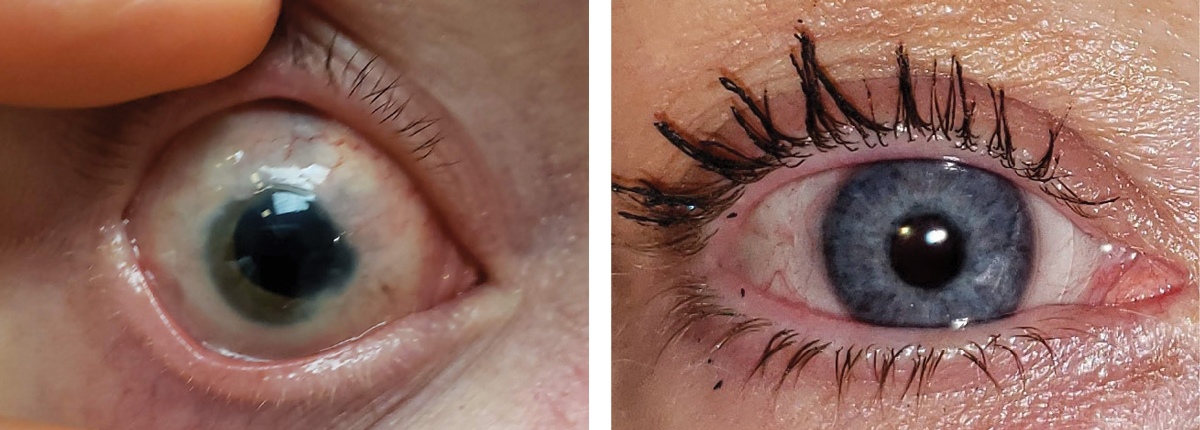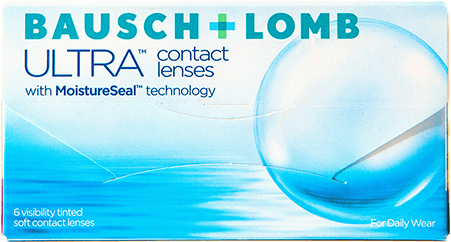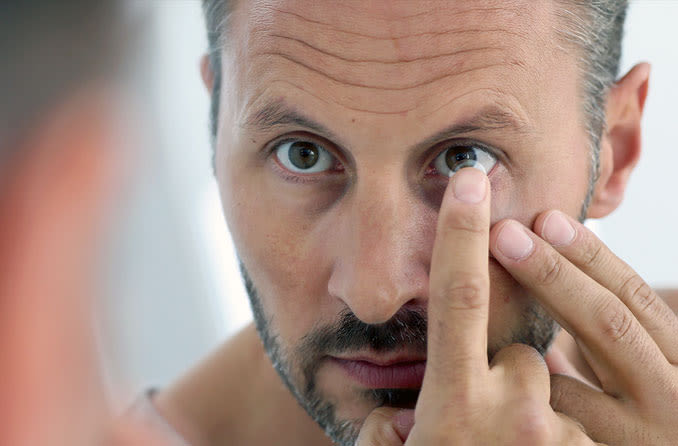As a general rule with conventional soft contact lenses the higher the water content of the lens the more oxygen can pass through the lens to the surface of the eye.
Low water content contact lenses.
This is important for lens comfort and healthy eyes but high water content lenses may be more fragile so are more likely to tear with frequent handling.
Water content is an important parameter of contact lenses that reveals the percentage of water in contact lenses.
They have almost 100 oxygen permeability.
High water content lenses are lenses with more than 50 water whereas low water content lenses have less than 50 water.
High water content up to 90 hydrogel contact lenses for more sensitive eyes.
Generally hydrogel lenses that have a low water content are thinner than soft lenses that have a high water content.
Low water content contact lenses containing less than 40 percent water medium water content containing 50 to 60 percent water and high water content contact lenses containing more than 60 percent water.
Soft contact lenses are usually available in three categories.
For some people 38 percent water content will be just fine and for others it won t be sufficient.
Some people can wear ciba vision night and day contacts overnight for 30 days while other people will never be able to sleep in contact lenses overnight without having problems dry eye infection not enough oxygen etc.
Mid water content up to 60 hydrogel contact lenses suitable for most users.
Contact lenses with a lower water content dehydrate less on the eye than do lenses with a high water content so they could be better for people with dry eyes.
Water content is an important feature of the various plastics used to make soft contact lenses.
There is significant variation in thickness and water content of hydrogel contact lenses because people will respond differently to the materials.
In general contact lenses are broken down into high water content and low water content lenses.
Since they need less moisture to remain permeable silicone hydrogel lenses can be safely worn for longer periods of time depending on the kind and brand of lens.
Contacts with a high water content have a higher oxygen permeability.
First introduced in the 1990s silicone hydrogel lenses allow even more oxygen to pass through to the cornea than regular soft contacts and they generally have low water content.
For those who wear soft contact lenses the water content ranges between 38 to 75 percent.
High water content lenses are more likely to cause dry eye than those with low water content.
Soft contact lenses are categorized by how much water they contain.
As a rule with conventional soft contact lenses the higher the water content the more oxygen can pass through the lens.





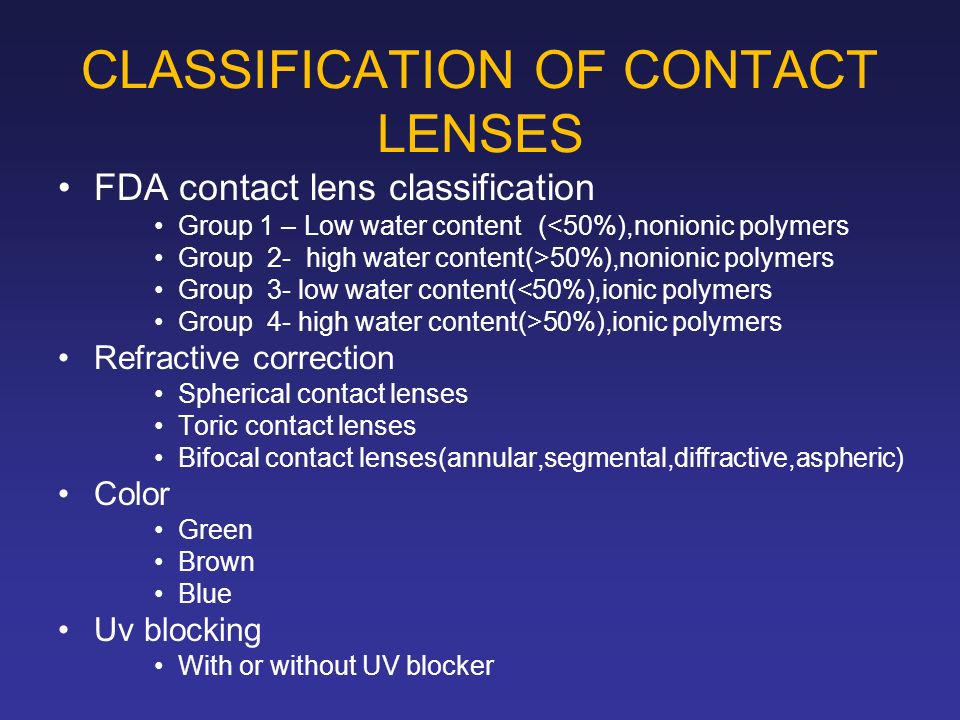


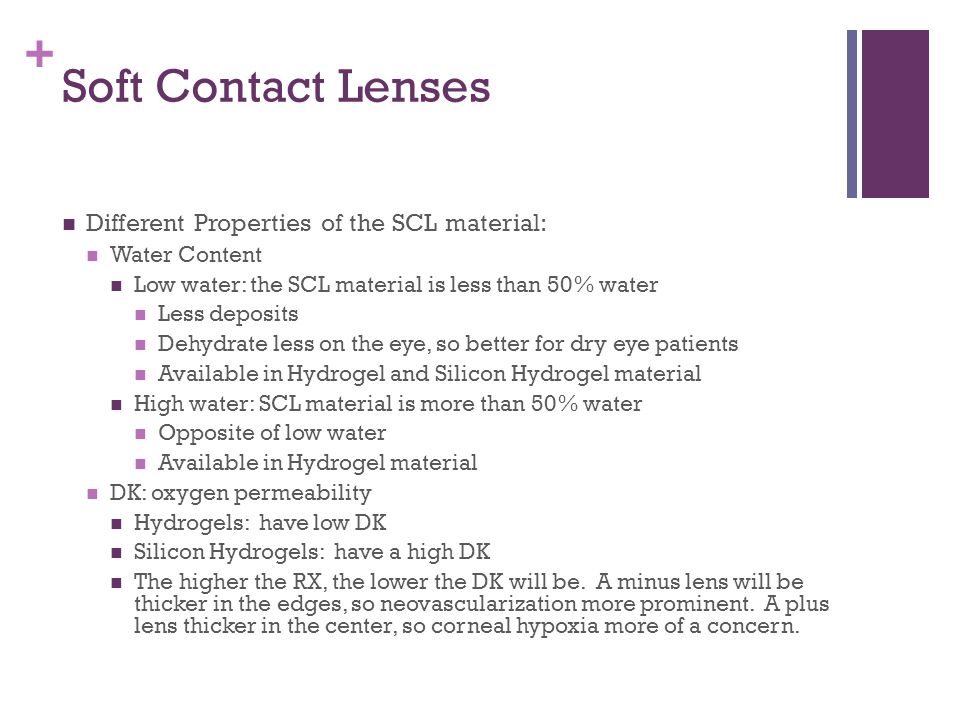
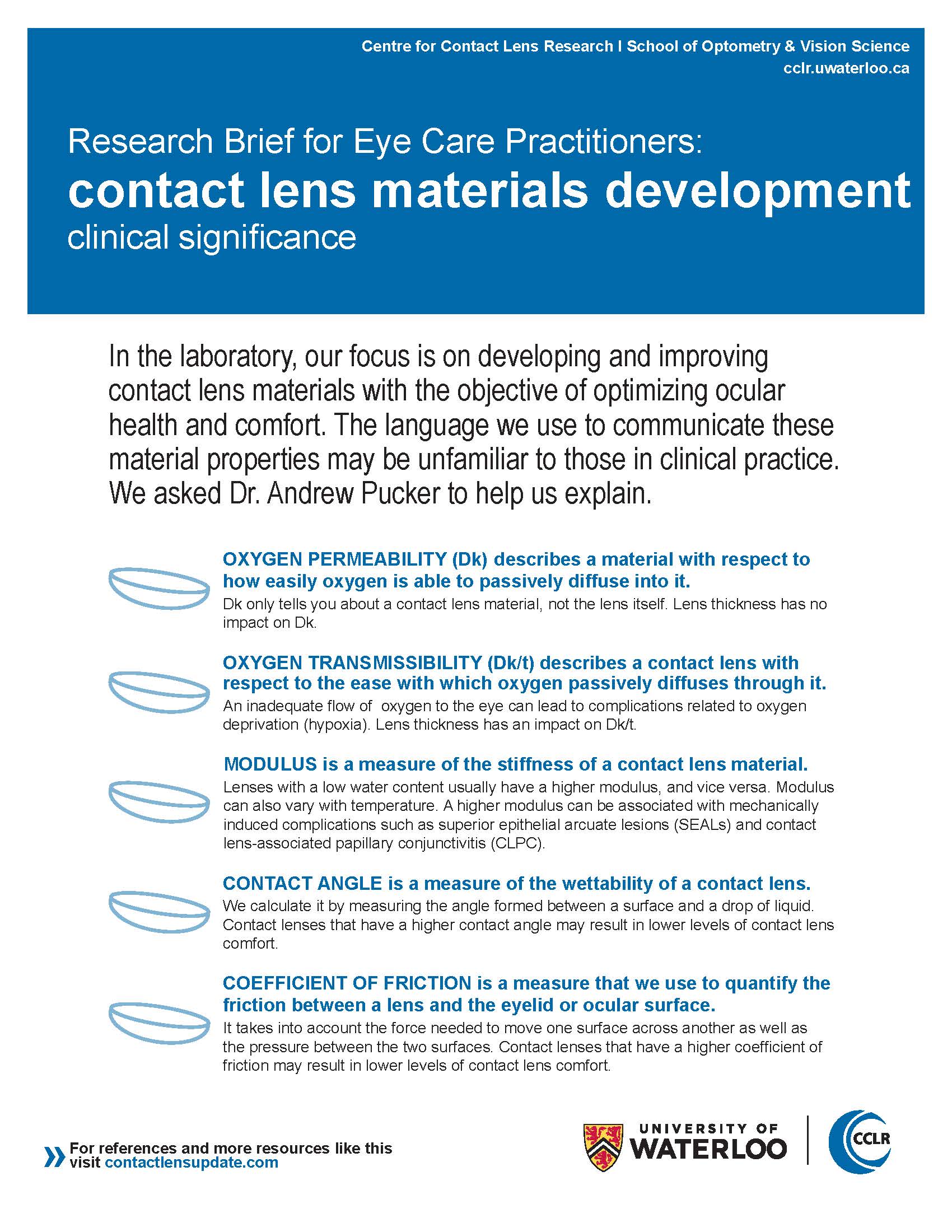
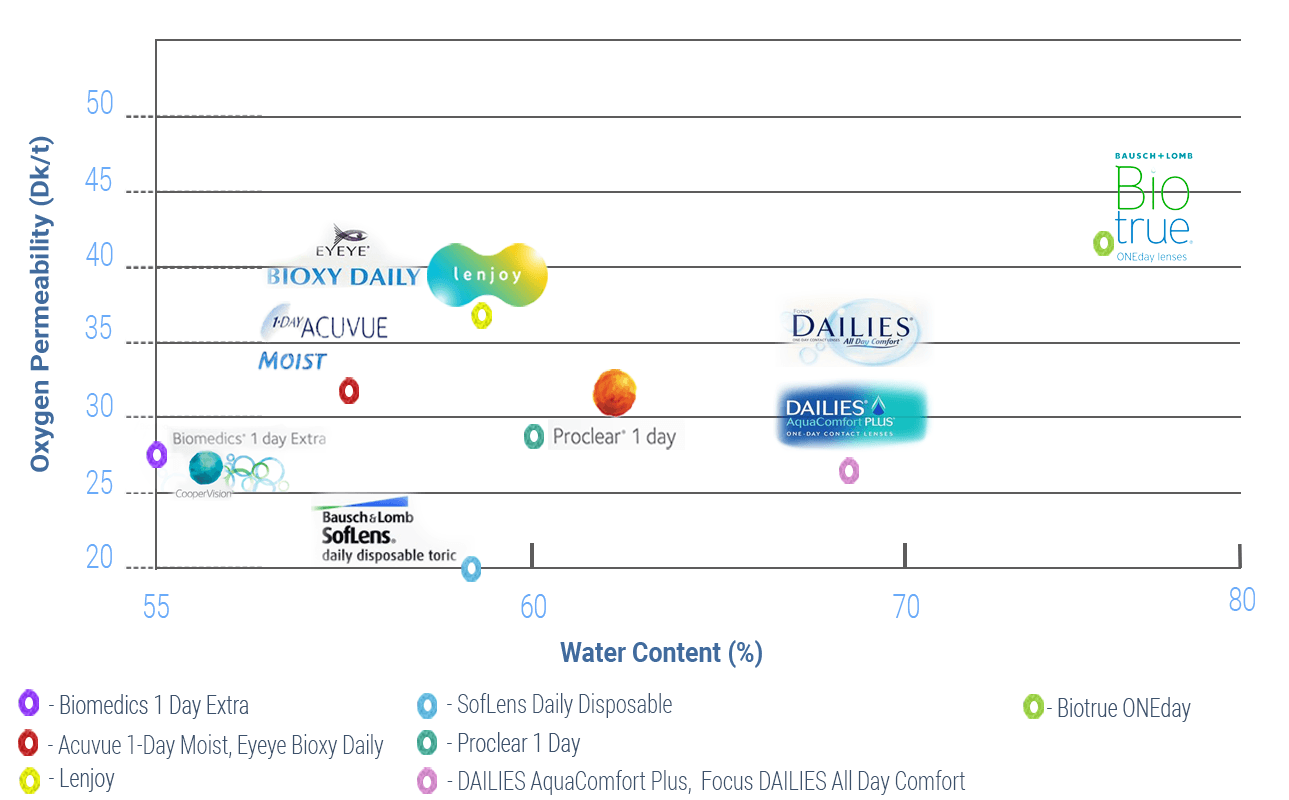

/ScreenShot2019-04-01at2.48.19PM-9bd5534cae0c4e16bea043b346bb3c15.png)
